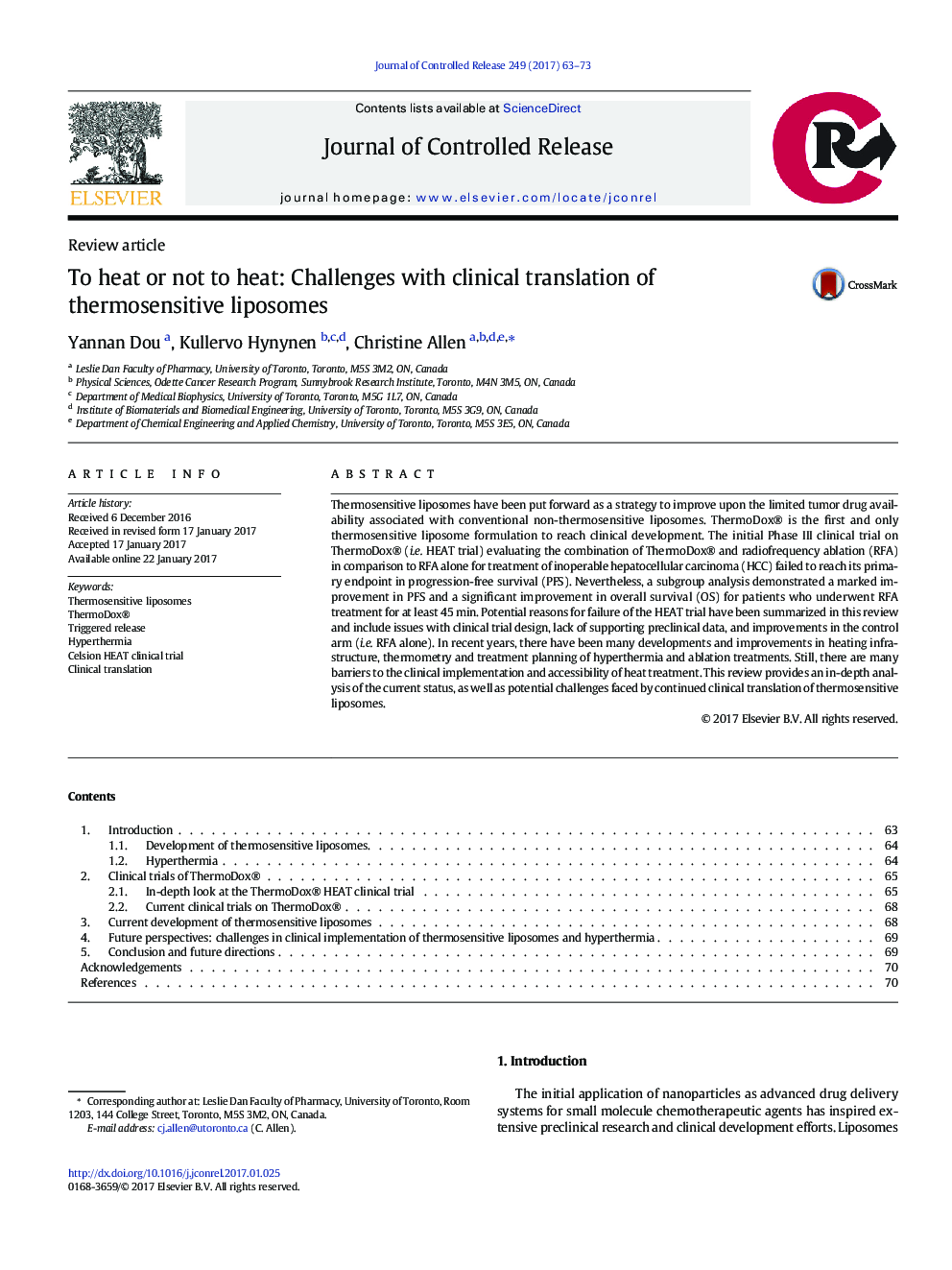| Article ID | Journal | Published Year | Pages | File Type |
|---|---|---|---|---|
| 5433840 | Journal of Controlled Release | 2017 | 11 Pages |
Thermosensitive liposomes have been put forward as a strategy to improve upon the limited tumor drug availability associated with conventional non-thermosensitive liposomes. ThermoDox® is the first and only thermosensitive liposome formulation to reach clinical development. The initial Phase III clinical trial on ThermoDox® (i.e. HEAT trial) evaluating the combination of ThermoDox® and radiofrequency ablation (RFA) in comparison to RFA alone for treatment of inoperable hepatocellular carcinoma (HCC) failed to reach its primary endpoint in progression-free survival (PFS). Nevertheless, a subgroup analysis demonstrated a marked improvement in PFS and a significant improvement in overall survival (OS) for patients who underwent RFA treatment for at least 45Â min. Potential reasons for failure of the HEAT trial have been summarized in this review and include issues with clinical trial design, lack of supporting preclinical data, and improvements in the control arm (i.e. RFA alone). In recent years, there have been many developments and improvements in heating infrastructure, thermometry and treatment planning of hyperthermia and ablation treatments. Still, there are many barriers to the clinical implementation and accessibility of heat treatment. This review provides an in-depth analysis of the current status, as well as potential challenges faced by continued clinical translation of thermosensitive liposomes.
Graphical abstractDownload high-res image (260KB)Download full-size image
